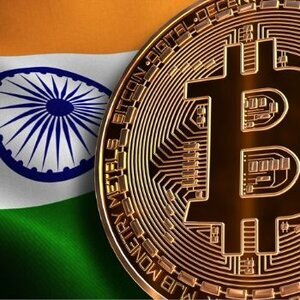Virtual Currencies: An Opportunity Not to Be Missed!

Introduction
In March 2020, the Supreme Court of India in the case of Internet Mobile Association of India v. Reserve Bank of India set aside the Reserve Bank of India’s (“RBI”) circular dated 6 April 2018 (“Circular”), which (a) prohibited entities regulated by RBI to deal in virtual currencies or provide services for facilitating any person or entity in dealing with or settling virtual currencies and (b) to exit any relationship with such persons or entities, if they were already providing such services to them. The Supreme Court also opined that while the RBI has power to regulate the virtual currencies, the prohibition imposed by the Circular is against the principle of proportionality and ultra vires the Constitution of India.
Regulating Virtual Currencies in India
In India, dealing in virtual currencies per se, is not illegal. However, virtual currencies are not considered as valid legal tender. Inter-Ministerial Committee (“IMC”), which was constituted in 2017, recommended that legislation should be brought in effect to ban the use of virtual currencies. In addition to this recommendation, IMC proposed that the Government should come up with an official digital currency. A bill to this effect was also drafted but has not been presented yet in parliament for discussion.
The market of virtual currencies in India has steadily diminished over the period of time mainly due to the Circular issued by RBI, which prohibited use of banking channels by entities who were dealing in virtual currencies, as well as other regulatory uncertainties.
Amid the uncertainty of regulation of virtual currencies, the moot point still being whether virtual currencies would be considered and regulated as legal tender. As per various news reports, RBI is considering regulating virtual currencies and is in the process of developing a framework for its regulation. However, virtual currencies might not be considered as legal tender and allowed as a payment method to avail various goods and services since the Government of India has in the past viewed virtual currencies as a tool for money laundering and financing terrorism around the world.
Virtual currencies are still not considered as legal tender in most countries except for few, such as Australia, Japan and Switzerland. In Australia and Japan, virtual currencies are treated as property and are subject to capital gains tax. Similarly, Switzerland considers virtual currencies as assets and it is subject to wealth tax. It is important to note that since 2016 the European Union has made virtual currencies legal and member states may introduce their own virtual currencies.
The other important aspect related to virtual currencies is whether virtual currencies can be regulated as securities. As per the definition of securities as provided under Securities Contracts (Regulation) Act, 1956 (“SCRA”), virtual currencies do not fall within this ambit as securities are backed by an underlying asset and virtual currencies do not have any underlying asset. However, SEBI, India’s security market regulator, may regulate and recognise virtual currency exchanges and virtual currencies akin to regulating securities and stock exchanges. Further, as per Bloomberg’s report, revisions in the definition of securities under SCRA maybe seen to bring virtual currencies within the scope of the definition of securities under the SCRA.
Presently, there is no framework to regulate the virtual currency exchanges and trading platforms in India. Although existing virtual currency exchanges are technically legal, there is no framework to regulate and recognise them. Some countries like the US, UK, Canada and Singapore permit trading of virtual currencies and have put in place a framework to regulate and recognise virtual currency exchanges and trading platforms.
Conclusion
While various stakeholders are waiting for a framework which regulates virtual currencies without compromising the innovation behind the technology, it’s still not clear how and to what extent virtual currencies are going to be regulated in India. The RBI in various reports has appreciated innovation behind the block chain technology and distributed ledger technology. It will be interesting to see how the government fits virtual currencies within the existing legislative framework and whether there is going be ban on private virtual currencies to make way for a state backed official virtual currency. All this is important as the technology backing virtual currencies and trading in such currencies is being acknowledged in other financial centres and it may happen that due to lack of policy and regulations, India may miss out on an opportunity!